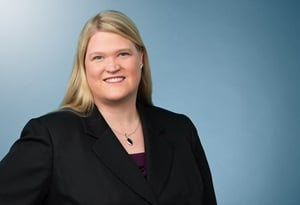Supreme Court Decides Shurtleff v. Boston
On May 2, 2022, the U.S. Supreme Court decided Shurtleff v. Boston, No, 20-1800, holding that because Boston’s flag-raising program does not constitute government speech, Boston violated the Free Speech Clause of the First Amendment when it refused to allow petitioners to fly their flag during an event, due to Establishment Clause concerns.
In 2017, Harold Shurtleff, the director of an organization called Camp Constitution, asked to hold an event on Boston’s City Hall Plaza to include the raising of what the organization described as the “Christian flag.” Boston’s Property Management Department Commissioner did not permit the group to raise this flag. He worried that flying a religious flag at City Hall could violate the Constitution’s Establishment Clause and found no record of Boston ever having raised such a flag. Petitioners argued that Boston’s refusal to allow them to raise their flag violated the First Amendment’s Free Speech Clause. The district court held that flying private groups’ flags from City Hall’s third pole amounted to government speech and granted summary judgment to Boston; the First Circuit affirmed.
The Supreme Court reversed. The Court first evaluated whether Boston’s flag-raising program constituted private, rather than government, speech. The Court explained that the boundary between government speech and private expression can blur when the government invites the people to participate in a program, and therefore conducted a “holistic inquiry” to determine whether the government intended to speak for itself through the flag-raising program.
While the history of flag flying favored Boston’s position, the Court found that circumstantial evidence of the public perception of the flags flying before City Hall did “not tip the scale” either way to resolve whether Boston conveyed a city message with the flag-raising program. The Court found most salient that Boston did not actively control the flag raisings or shape the messages sent by the flags. The Court noted the city’s practice to approve flag raisings without exception. Boston had no record of previously denying a request. The Court therefore held that the flag-raising program was not government speech. Because a government not speaking for itself may not exclude speech based on religious viewpoint, Boston’s refusal to fly Camp Constitution’s “Christian flag” violated the Free Speech Clause.
Justice Breyer authored the Court’s opinion, in which Chief Justice Roberts and Justices Sotomayor, Kagan, Kavanaugh, and Barrett joined. Justice Kavanaugh filed a concurring opinion. Justice Alito filed an opinion concurring in the judgment, in which Justices Thomas and Gorsuch joined. Justice Gorsuch also filed an opinion concurring in the judgment, in which Justice Thomas joined.
The material contained in this communication is informational, general in nature and does not constitute legal advice. The material contained in this communication should not be relied upon or used without consulting a lawyer to consider your specific circumstances. This communication was published on the date specified and may not include any changes in the topics, laws, rules or regulations covered. Receipt of this communication does not establish an attorney-client relationship. In some jurisdictions, this communication may be considered attorney advertising.



